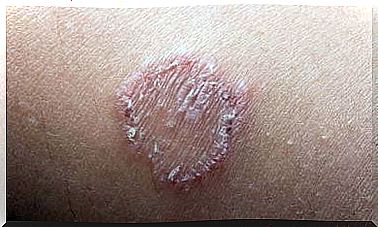Narcissistic Personality Disorder

Narcissistic personality disorder is a mental condition that causes the individual to have an excessive sense of self-centeredness and very little genuine empathy for others. Typically, the person usually thinks that he / she deserves special treatment and has an extreme need to be the center of attention.
In general, they often have shortcomings in their relationships with other people because they focus all their attention on themselves and do not care what happens to others. In fact, they often only recognize third parties when they validate their confidence through constant flattery.
Behind their mask of extreme security, however, there is a fragile self-confidence that can be aggravated with the slightest criticism. Because of this, they tend to get depressed easily as they feel unhappy and disappointed when they do not live up to their expectations.
Likewise, they never ever feel satisfied with their relationship because they are constantly comparing people to themselves and there is no one as amazing as them.
What are the causes of this disorder? How can you identify it?
In today’s article, we’ll tell you what factors can trigger it and what signs can help you identify it.
Causes of narcissistic personality disorder
As with other mental disorders, there is no exact cause that can explain narcissistic personality disorder. However, experts believe that it is the result of a combination of neuro-biological, genetic and environmental factors.
Also read: 5 types of emotional vampires
Given this, a person is at high risk of suffering from this personality disorder when:
- He / she has bad family relationships, either due to excessive affection or excessive criticism.
- He / she suffers from changes in cerebral connections between behavior and thinking.
- Some of his / her parents or close relatives have a history of the disease.
- He / she receives excessive praise for his / her appearance or abilities.
Symptoms of narcissistic personality disorder

In general, there are many signs that can help us identify narcissistic personality disorder, as well as the severity with which they occur. Often, the person who suffers from it is self-centered, exaggerates his abilities and views others as inferior.
In addition, other symptoms include:
- An exaggerated sense of arrogance
- A constant need to be admired or praised.
- An expectation of recognition of superiority, even if his / her results do not reflect it.
- Exaggeration of his / her results and talents.
- Concerns about his / her future success and perfect / idealized romantic match.
- A sense of superiority over others and the need to compare oneself.
- The desire to only be with people who are as amazing as him / her.
- A monopolization of the conversation.
- The expectation of special services.
- Exploitation of others for one’s own benefit, often with a complete disregard for their needs or feelings.
- Lack of emotional empathy.
- Jealousy of others and conviction that others are jealous of them.
- Arrogant or cocky behavior.
- Greatness madness or the insistence on having the best of everything.
Similarly, a person with narcissistic personality disorder has very little tolerance for criticism and has difficulty facing any situation where the opposite is the case.
As a result, they also exhibit signs such as:
- Impatience and anger.
- Difficulty having social interactions.
- Conductive and poor treatment of others to give the impression that they are superior.
- Difficulty regulating their emotions and behaviors.
- Depression or anxiety caused by being imperfect.
- Feelings of insecurity, shame and humiliation.
- Inability to deal with stress and adapt to change.
Diagnosis
Typically, the diagnosis of narcissistic personality disorder is often complicated. After all, many of its symptoms are similar to those of other disorders. In addition, more than one personality disorder can be diagnosed at a time.
To confirm this mental illness, healthcare professionals consider the criteria in the Diagnostic and Statistical Manual of Mental Illness (DMS-5). In addition, they will also conduct a physical examination and conduct an intensive psychological evaluation.
Also read: How to put distance from toxic people
Treatment of narcissistic personality disorder

Unfortunately, it is often very difficult for a person with this disorder to access and accept treatment.
Because of their egocentric behavior and belief that they are perfect, they usually do not accept that they have a problem. Therefore, they often do not consider getting help.
If a person still gets the diagnosis and decides to go into therapy, health professionals will recommend several sessions of cognitive behavioral therapy.
Overall, its goal is to:
- Teach them to relate better to others.
- Understand the reasons for their behavior.
- Help them maintain real personal relationships.
- Strengthen their ability to work in groups.
- Recognize and accept the abilities they need to be able to tolerate criticism and failure.
- Increase their ability to recognize and control their emotions.
- Release the desire to achieve unattainable goals.
- Improve their true self-esteem.
- Control their stressful moments.
Medicine
In general, there is no specific medication to combat narcissistic personality disorder. However, a doctor may suggest using anti-anxiety drugs or antidepressants to control the symptoms of anxiety and depression.
Finally, it is worth mentioning that the disorder can get worse over the years. However, this depends on the cause and the person’s lifestyle.
However, the person may experience a great deal of improvement if he or she has healthy conditions and continues to receive treatment. Overall, treatment is essentially the key.









